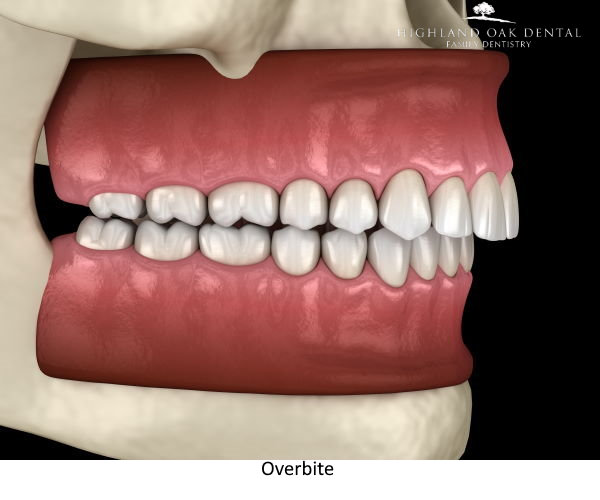- 214-308-5359
- Mon – Fri: 9:00 AM – 5:00 PM
- 5444 FM 423 Ste 600, Frisco, TX 75036
Many individuals choose to live with an overbite rather than fix it. Freddie Mercury, the late rock hero, for example, chose to preserve and appreciate his significant overbite. Others treat this problem merely to enhance occlusion (dentistry), which improves their aesthetic appearance. Others, however, may need treatment to prevent problems such as jaw disorders and tooth and gum damage.
An overbite or buck teeth develops when the upper teeth protrude too far beyond the lower teeth. Most individuals have a little overbite, which isn’t obvious and has no effect on their biting or dental health.
When the disease becomes sufficiently severe, it may lead to irreversible tooth damage and temporomandibular joint dysfunction. Severe buck teeth may also radically change face shape, leading to psychological difficulties and poor self-esteem. Overbite correction porcelain veneers can also be a solution in overbite cases where the margin is not beyond the scope of the restorative procedure. Our dentist at Highland Oak Dental can straighten your teeth and get rid of overbite for good.

The reason is frequently inherited and may be handed down through generations, although there are extrinsic influences that can compel the teeth to migrate.
It is natural for a kid to suck their thumb, but if it persists into three or four years of age and while their permanent teeth are developing, the pressure created by sucking the finger might cause the permanent teeth to come in at an incorrect angle.
Sucking a pacifier may induce it in the same manner that thumb sucking does. Pacifier usage increases the risk of malocclusion, according to the Journal of the American Dental Association in 2016.
Many individuals grind their teeth without realizing it. Teeth grinding is fairly prevalent when sleeping. Bruxism is often the source of an overbite, which may lead to considerable discomfort in the jaw and head region. Teeth grinding may also cause early deterioration of the tooth enamel, resulting in tooth decay. Further read about missing teeth.
The alignment of the front teeth may be caused by tooth space or crowding. When you lose a tooth or two, the remaining teeth move over time, changing the position of your teeth.
Inadequate room to fit the teeth may also lead to alignment difficulties.
Tumors and cysts in the mouth or jaw may impact tooth alignment as well as the form of your mouth and jaw. This happens when there is chronic swelling or development in the soft tissue or bone structure of the upper region of the mouth, causing the jaw to slip forward.
Overbite may also be caused by continuous nail-biting and chewing on hard things such as pens, pencils, or other items.
Vertical – It is where the top teeth significantly overlap the bottom teeth.
Horizontal – This happens when the top teeth protrude over the bottom teeth.
A patient may show indications of both vertical and horizontal overbite. It might alternatively be classified as dental or skeletal. When teeth cause buck teeth, it called dental. When the jaw is the cause of the problem, it is referred to be skeletal.
In general, you will need orthodontic treatment since medication alone will not be able to cure it. Because a child’s jaw is still developing, it is simpler to treat. Adults, on the other hand, will struggle as if they had not had any therapy up to this point. It will have more severe symptoms.
In any situation, the professional will evaluate the region and provide treatment recommendations. These therapies might extend for two years or more. Learn about overbite correction invisalign aligners to treat irregularities in the alignment of teeth.
Here are some dental procedures that your orthodontist (one of several medical specialties) may recommend:
Children:
Adults:
At Highland Oak Dental, our vision is to establish a trusted dental practice renowned for exceptional care, rooted in quality, compassion, and a comprehensive approach.